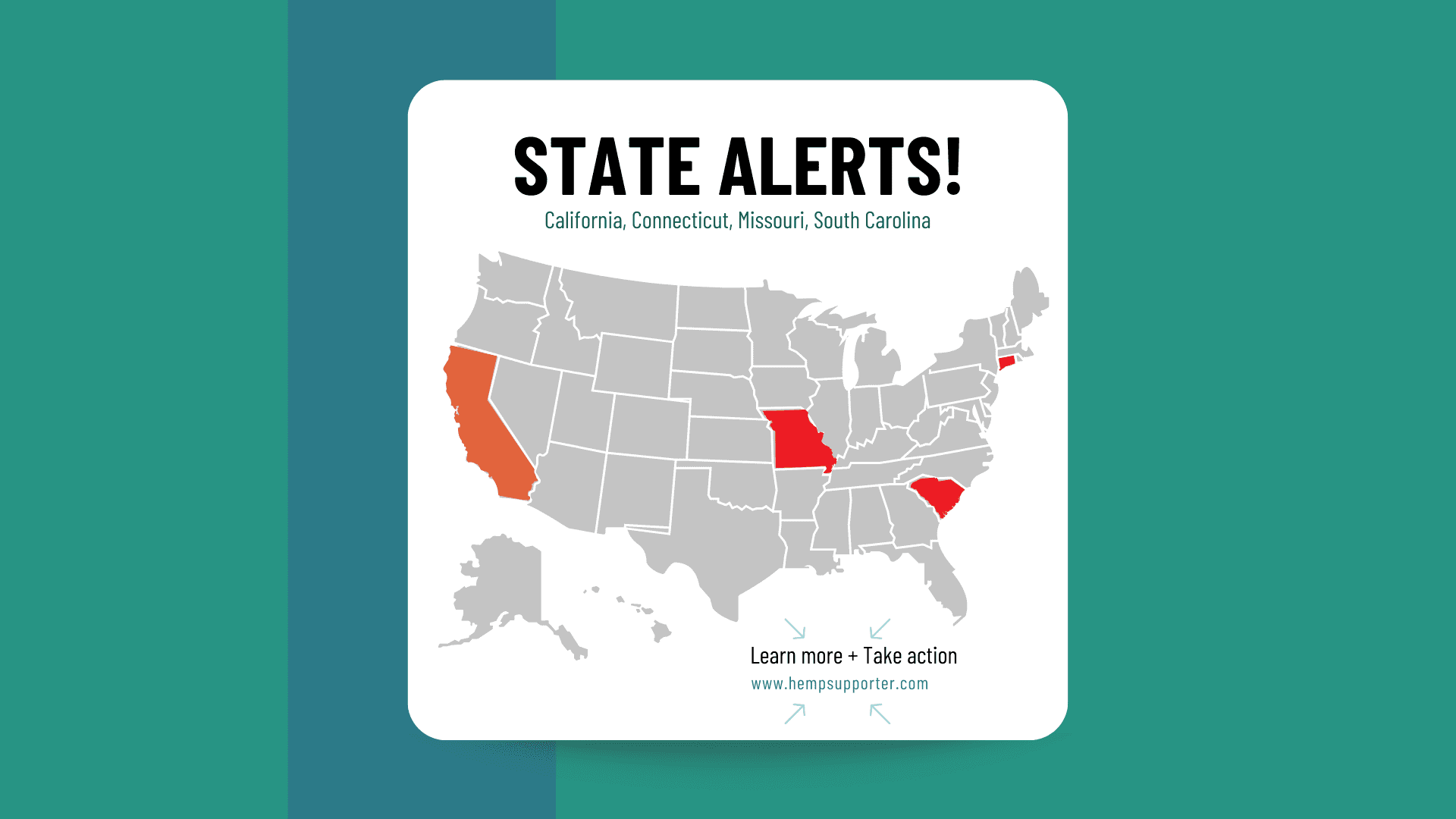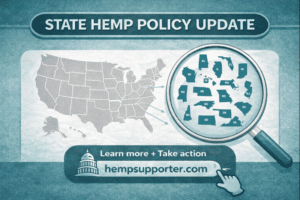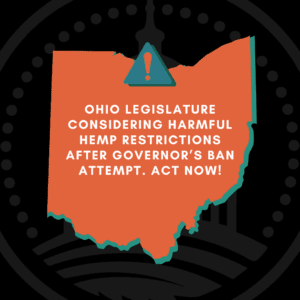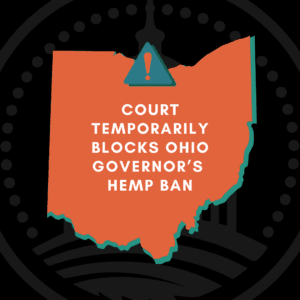INDUSTRY UPDATES
February 16, 2024
New Bills & New “Rules”: California, Connecticut, Missouri, and South Carolina

Check out the latest legislative updates across the states and take action today!
California
In California, AB 2223 would cause significant changes for many hemp products. The bill legalizes inhalable hemp products but would prohibit the manufacture, distribution, or sale of a hemp product that contains a synthetically derived cannabinoid. The bill does not establish per-serving THC limits, but it restricts hemp food and beverage products to five servings per package. Our understanding is that per-serving limits will be added to the bill. The bill has some confusing language regarding the seizure of cannabinoid products as cannabis, and it requires out-of-state manufacturers of food and beverage products to be registered, but the good news is that the Roundtable has been invited by the bill’s drafters to offer input. If you have suggestions for how the bill can be improved, please send them to us at [email protected]!
If you have suggestions for how the bill can be improved, please send them to us at [email protected]
Connecticut
We’ve been hearing reports from Connecticut that legislation would be introduced to lower THC limits. The reports proved true. HB 5150 would set a 0.5mg THC limit per container for all hemp products and would eliminate the THC limits enacted last year based on different product types. This would effectively ban most hemp-derived products and is a drastic step backwards that would destroy economic opportunities for hemp businesses.
We encourage Connecticut Hemp Supporters to urge legislators to oppose the bill.
Missouri
In Missouri, SB 984 would treat intoxicating cannabinoid products as marijuana, criminalizing them. Although CBD products would be excluded, the term intoxicating cannabinoid would broadly include (1) “any cannabinoid or cannabimimetic agent, however derived or created, that has an intoxicating effect when consumed or otherwise ingested, irrespective of whether the cannabinoid or cannabimimetic agent was created or developed through natural means or through chemical conversion, isomerization, synthetic derivation, heat, or any other process by which molecules may be manipulated” and (2) “any cannabinoid, semisynthetic or synthetic cannabinoid, or precursor to an intoxicating cannabinoid that may become intoxicating when heated, decarboxylated, or otherwise manipulated.”
Hemp Supporters in Missouri are encouraged to urge legislators to instead embrace Kentucky’s model—rather than criminalization, let’s strictly regulate intoxicating products so that they are unavailable to minors.
South Carolina
In South Carolina, the Department of Health and Environment Control recently released new guidelines for food and beverage hemp products. The guidelines state that CBD isolate, delta-8, delta-9, and delta-10 THC, and full-spectrum extract are not approved for food or beverage products. No product label may bear any reference to THC, CBD, or delta-9, which makes compliance with truth-in-labeling and other states’ labeling laws impossible. Products may not contain dosage instructions, such as “10MG THC.” And permits for full spectrum hemp oil/extract (that does not refer to THC or CBD) would be restricted to products intended for in-state sales only. The guidelines have already negatively impacted businesses and drawn the ire of some state lawmakers. We’re watching for formal proposed rules.
Hemp Supporters in South Carolina are encouraged to urge legislators to support HB 4628- a bill that, if passed, would reverse this decision.
Visit our State Action Center to see active campaigns across the country!
Check out the latest hemp and CBD updates from across the states!
- State Hemp Policy Update: Alabama, Florida, Hawaii, Illinois, Indiana, Massachusetts, Mississippi, Missouri, Nebraska, New Hampshire, New Jersey, North Carolina, Oklahoma, South Carolina, South Dakota, Virginia, and WisconsinTake Action Now: Use our State Action Center to contact lawmakers and protect the future of hemp in your state. We’re officially back with our state updates. for 2026. As state …
- Ohio Legislature Considering Harmful Hemp Restrictions After Governor’s Ban Attempt. Act Now!The Ohio legislature is reacting quickly to Governor DeWine’s efforts to ban hemp products. While we have been successful thus far in court against his Executive Order, the General Assembly …
- Court Temporarily Blocks Ohio Governor’s Hemp BanWe’re pleased to share that Judge Carl Aveni has granted a Temporary Restraining Order (TRO) blocking Governor Mike DeWine’s executive order banning the sale of “intoxicating hemp” products in Ohio. …




